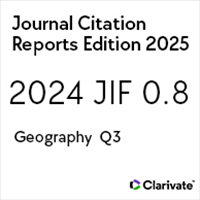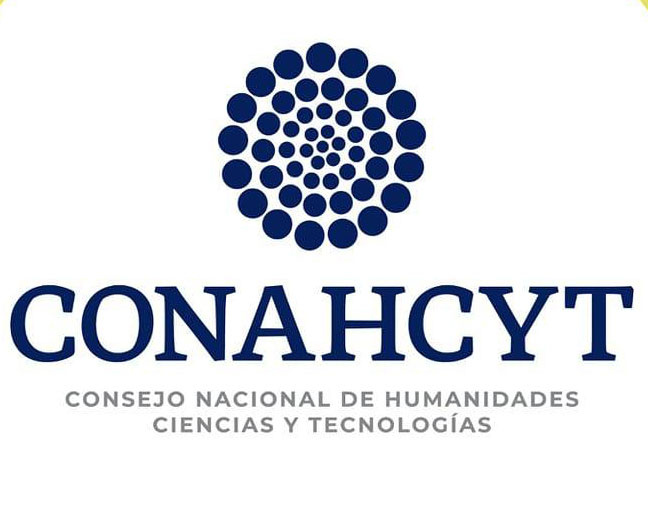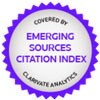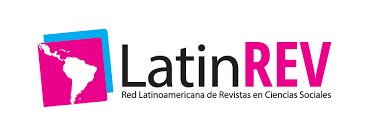Pobreza y desigualdad en México después del TLCAN: retos, contratiempos y consecuencias
Poverty and Inequality in Mexico after NAFTA: Challenges, Setbacks and Implications
https://doi.org/10.21670/ref.2008.17.a03
Palabras clave:
TLCAN, pobreza, inequidad, México, migración económicaResumen
Este artículo analiza el progreso logrado en la disminución de la pobreza y la inequidad en México durante los años posteriores a la firma del Tratado de Libre Comercio, desde 1994 al 2007, y su relación inherente al debate académico en torno a la reducción de la pobreza en un contexto de integración económica regional y liberalización comercial internacional. Específicamente, en el artículo se examina la evolución de la pobreza urbana y rural en México, las disparidades internas regionales y de ingreso, así como también el rol del gasto gubernamental después del inicio del Tratado de Libre Comercio dentro de un marco de liberalización económica marcado por una expansión de flujos comerciales y de inversión con Estado Unidos.Abstract This article analyzes the progress obtained in diminishing poverty and inequality in Mexico during the post-NAFTA years ranging from 1994 to 2007, and how it pertains to the broad critical debate surrounding poverty-gap reduction in the context of regional and international economic integration and trade liberalization. Specifically, the article discusses the evolution of Mexican rural and urban poverty, income and regional disparities, as well as the role of government spending after the enactment of NAFTA and within the framework of economic liberalization marked by expanded international trade and investment, particularly with the United States.
Citas
Ahmed, Maria (2006), "Free and Fair Trade", Global Agenda, p. 111.
Bancomext (2006), "Información de Sectores. Estadísticas e Informes", retrieved April 21, 2007 from http://www.bancomext.com/Bancomext/portal/
Bean, Frank & Lindsay Lowell (2004), "NAFTA and Mexican Migration to the United States", in Weintraub (ed.), NAFTA's Impact on North America: The first decade(263–284), Washington D.C., CSIS Press.
Bensusan, Graciela (2004), "Labor Regulations and Trade Union Convergence in North America", in Weintraub (ed.), NAFTA's Impact on North America: The first decade (123–155), Washington D.C., CSIS Press.
Cassidy, John (2006), "Relatively Deprived: How poor is poor?", The New Yorker.Retrieved April 22, 2007, fromhttp://www.newyorker.com/archive/2006/04/03/060403fa_fact
Corbacho, Ana & Gerd Schwartz (2002), Mexico: Experiences with Pro–Poor Expenditure Policies, Washington, D.C.: International Monetary Fund. DOI: https://doi.org/10.2139/ssrn.879336
Dickerson, Maria (2007), "Mexico Needs to Overhaul Tax Collection", LosAngeles Times, March 17th retrieved on April 3, 2007 fromhttp://www.latimes.com/business/taxes/
Dobbs, Lou (2006), War on the Middle Class: How the Government, Big Business and Special Interest Groups are Waging War on the American Dream and How to Fight Back, New York, Viking.
Economic Commission for Latin America and the Caribbean (2006), México: Estudio Económico 2005–2006, Santiago, Chile, Economic Commission for Latin America and the Caribbean.
Economic Commission for Latin America and the Caribbean (2005), Social Panorama Report, Santiago, Chile, Economic Commission for Latin America and the Caribbean.
Freidman, Lustig & A. Legovini (1995), "Mexico: Social spending and Food Subsidies during Adjustment in the 1980's", in Copying with Austerity, N. Lustig (ed.), Washington, D.C., Brookings Institute Press.
Freidman, Milton (1962), Capitalism and Freedom, Chicago, The University of Chicago Press.
Galbraith, John Kenneth (1976), The Affluent Society, Boston, Houghton Mifflin Company.
Hanson, Gordon (2003), What has happened to Wages in Mexico since NAFTA?Implications for Hemispheric Free Trade, San Diego, California, National Bureau of Economic Research, Inc. DOI: https://doi.org/10.3386/w9563
Hufbauer, Gary Clyde & Jeffrey J. Schott (2005), NAFTA Revisited: Achievements and Challenges, Washington D.C., Institute for International Economics.
International Monetary Fund (2007), World Economic Outlook: Spillovers and Cycles, Washington, D.C., International Monetary Fund.
ITnews (2007, March 26), "Hitachi closes hard drive plant in Mexico",Itnews.com.au, March 26th retrieved on April 3, 2007 fromhttp://www.itnews.com.au/
Legovini, Arianna, Cesar Bouillon & Nora Lustig (2001), Can Education Explain Changes in Income Inequality in Mexico?, Washington D.C., Inter American Development Bank.
Lopez Feldman, Alejandro, Richard Adams, Jorge Mora & Edward Taylor (2005),Remittances, Inequality and Poverty: Evidence from Rural Mexico, San Diego, California, Giannini Foundation for Agricultural and Resource Economics.
Lowenstein, Roger (2006), "What is she doing to American jobs and wages?, The New York Times Magazine, July 9th, pp. 35–71.
Scott, John (2004), "Poverty and Inequality", in Weintraub (ed.), NAFTA's Impact on North America: The first decade (307–337), Washington D.C., CSIS Press.
The New York Times editorial (2006), "Swift Raids", The New York Times, December 8th, p. A26.
United Nations Conference on Trade and Development (2007), "Foreign Direct Investment. Definitions and Sources". Retrieved April 21 fromhttp://owl.english.purdue.edu/owl/resource/560/10/
Weintraub, Sidney (2004), NAFTA's Impact on North America: The first decade,Washington D.C., CSIS Press.
Williams, David (2004, January), "Mexico's NAFTA Experience", Ag Exporter,January, pp. 14–15.
Wodon, Quetin (2001), Government Programs and Poverty in Mexico, Washington, D.C., World Bank Publications.
World Bank (2005), Mexico: Income Generation and Social Protection for the Poor,Washington, D.C., World Bank Publications.
Zarsky, Lyuba & Kevin Gallagher (2004), NAFTA, Foreign Direct Investment, and Sustainable Industrial Development in Mexico, Silver City, New Mexico, Iterhemispheric Resource Center.































